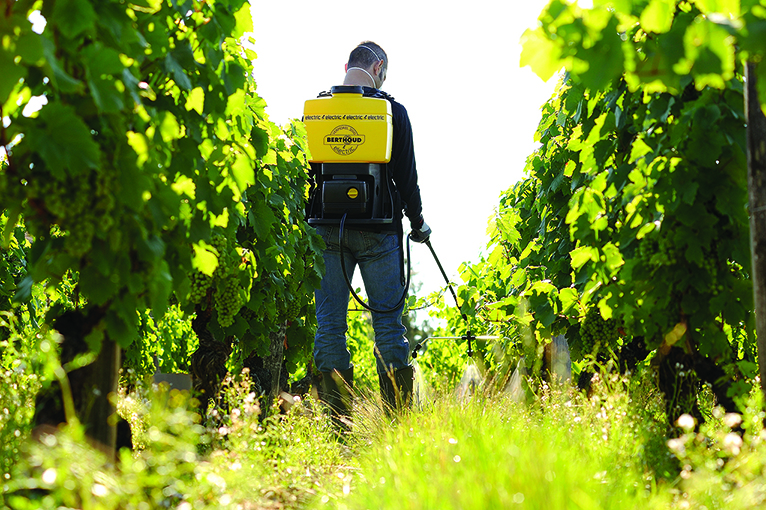Hobbyists are moving into viticulture to set up and run compact vineyards, creating demand for both specialist advice and new scales of disease management.
“Compact vineyards are too small for conventional tractor-mounted boom spraying of the kind usually employed on larger estates,” says William Mower of Vine-Works, which establishes and manages vineyards, also advising operators on a continuing basis.
“That means knapsack sprayers will provide the bulk of vine treatment for such sites, which range typically between 500 and 1,000 plants,” he adds.
“We plant up around 35 vineyards a year and are seeing a steady rise in those wishing to take up viticulture as a pastime, rather than as a profitable business venture.”
While knapsack spray treatment may seem a chore most estate managers can well do without, hobbyists will view such micro management differently.
That said, the disease and pest threats are every bit as real on the bespoke scale as they are on the rolling hillsides of the big players.
“Pesticide bans have limited the scope of treatments available to managers to tackle perennial pests such as the spotted wing drosophila (fruit fly), which lays its eggs on developing grapes,” William explains.
“An agronomist is vital in advising operators on their options,” he says, “but sulphur can prove effective against fungal attack from powdery mildew and plenty of brands are out there, such as Kumulus.”
Absence of a whole spread of chemicals means more work for the knapsack operator though. “Organic and biodynamic treatments [advice available from Sustainable Wines of Great Britain] involve more passes because they are less effective, though less harsh, than banned chemicals,” William adds.
The key challenge for managers is the high degree of disease impacting vines during the growing season, from April time through to October harvesting.
“Spraying programmes conform to a 14-day cycle throughout the season, ending at harvest,” William explains, “depending on the varieties grown, as some are more susceptible to disease than others.
“Preventable spraying can begin before flowering and fruit-set to give some protection later in the season,” he adds.
Qualified sprayer operators are vital to conform to strengthening safety standards. Sussex-based Vine-Works enjoys close links with nearby Plumpton College, which runs Safe Use of Pesticides training courses to ensure those safeguarding vine health are also shielding themselves and wildlife.
Knapsack sprayer specialists Hozelock-Exel manufacture and supply the Berthoud Vermorel range, widely applied across Europe, which includes telescopic lances designed to fully penetrate lush vine foliage and ergonomically designed safety harnesses to help make spraying a comfortable experience that avoids undue stress on the body.




